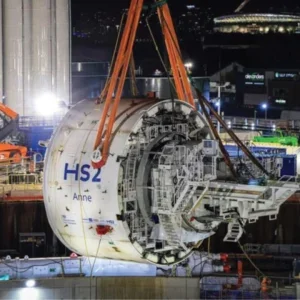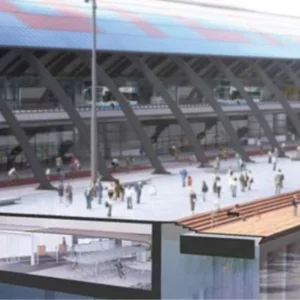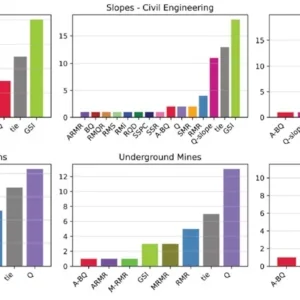The BTS meeting report of a presentation earlier this year from Bilfinger Berger engineers includes a brief history of the construction of the first Gotthard rail tunnel. It shows that harsh contract conditions foisted on contractors that are desperate enough to want the work is far from a new phenomena. For whatever reason, Louis Favre accepted a fantastic time frame, had virtually nil local geotechnical knowledge and low budgets, with the seeming inevitable consequences of project cost and schedule overruns and Favre’s own demise before project completion. In those days before establishment consideration of working conditions, the tunnellers suffered badly too.
There have been many moves in recent years to improve the smooth running of contracts once awarded with such measures as geotechnical baseline reports, better risk apportionment, and clientcontractor ‘partnerships’. This is a subject that T&TI will return to soon. However, sceptics might ask, with contractors always looking for the next source of work, would they not always claim that clientcontractor partnerships always work well?
Whatever the case with awarded contracts, it appears these days that some of the biggest delays and unnecessary costs occur before contracts are awarded. These not only involve the client, or its funders (such as taxpayers), in extra costs, but also those who have to answer requests for expressions of interests, and prequalification. Such procedures involve established contracting companies in substantial expense, which may never be recoverable. Such preparation costs are increased if it necessary for several companies to come together in a joint venture to accumulate and offer the necessary expertise, equipment, finance and local knowledge.
For their part it is well known that contractors have had a historical tendency to bid low and try to make money on ‘unforeseen circumstance’, of which there can be many in underground construction. This appears to have led to mistrust amongst clients and a tendency to try and be cleverer in a battle of wits. And yet, if there is an agreed costing of a bill of quantities, and a careful inspection of necessary extra work needing to be undertaken, there should not be a real problem. Despite its history of difficulties, the Hallandsas rail tunnel projects should be a case in point.
Let T&TI insert an idea into the mix. In may not even be new but is surely worth discussion. The clients of many projects that have hit difficulties, whether financial geological or environmental, have appointed a supremo to kick a few posteriors and get things moving again. The most successful have a history in civil engineering, mining or major project management already. When the project leader is fair to all those involved in the contracts, this has led to an increase or at least a maintenance of respect towards this leader. Far from being a figurehead, the project leader must be prepared to ‘get hands dirty’ and find out everything that is going, or not going on, so that all obstacles to project completion can be removed.
This project leader should be appointed before any construction contracts are let, and consulted on what contract procedures and client requirements are practical. He or she would then lead the appointments of those that will be entrusted with carrying out the work, whether individuals or contractors, within the agreed budget.
Whether or not this is fanciful, hopefully such a project structure would allow those involved to ‘get on with the job’, and deliver what the client wanted in the first place, within the specified project period and at budget cost. Nevertheless the concept planning, investigation and design processes should also be speeded up without contractors having to incur speculative expenditure through free design advice, joint venture formation, or similar measures. While some consultancy is, of course, necessary, it does not actually get the job done, but does add to costs.
There are several successful projects around the world that have shown that cost and scheduleoverruns are not inevitable but have delivered valuable infrastructure that may not be perfect, but works well. Whatever the way forward, it is clear that more trust is needed if major project management is not to get a bad name, with consequent drying up of funding for future work.
Maurice Jones






